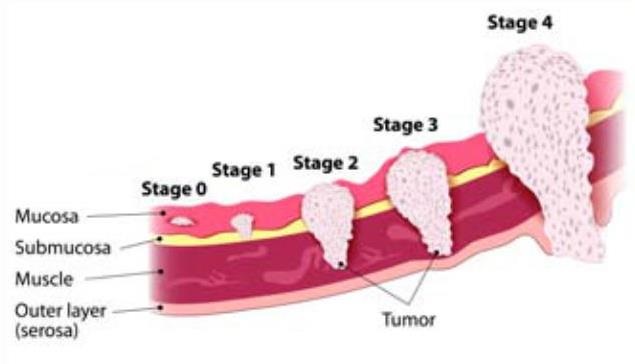
Colon and Rectal Cancer involve the colon and the rectum.
Risk factors
- Family history of colon and rectal cancer.
- Colon and rectal polyps.
- Diet rich in animal fat.
- Diet rich in animal proteins.
- Diet poor in fiber, vegetables and fruits.
Symptoms
Common Symptoms are:-
- Blood in the stool.
- Change in bowel habit.
- Constipation or diarrhoea.
- Black or dark-colored stool.
- Rectal swelling/growth.
- Weight loss.
- Abdominal pain/bloating/discomfort.
Diagnosis
- History is suggestive.
- The doctor will recommend colonoscopy and biopsy will be taken to confirm the diagnosis of colon cancer.
- Endoscopic ultra-sound and MRI are used to stage (spread) rectal cancer.
- CTSCAN is used to stage colon cancer.

Treatment
Treatment of colorectal cancer depends on the stage (spread) and fitness of the patient.
- Very early stage( 0&1) endoscopic removal (resection) is recommended.
- Stage 2 & 3, surgery is recommended.
- For advanced rectal cancer (Stage 3 & 4) chemotherapy and radiotherapy are recommended.
- Advanced colon cancer (stage 4) chemotherapy is recommended.
- Palliative care (supportive care) is useful for patients with the advanced disease.
- Multimodal treatment (surgery, chemotherapy and radiotherapy) are beneficial to certain patients.
